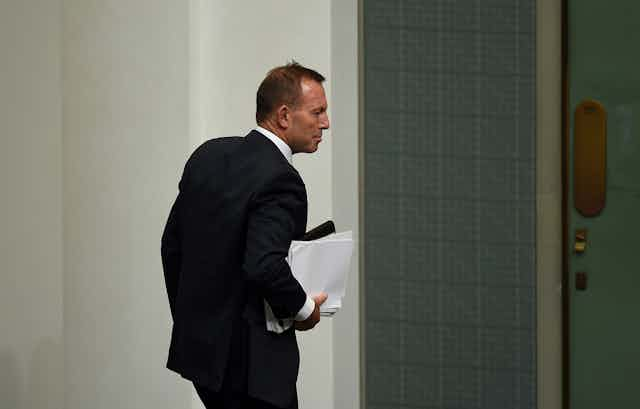Former Prime Minister Tony Abbott spent just shy of two years in office, making it difficult for Australians to associate him with much of a legacy.
But you only have to see what’s changed over the past two years since Abbott’s infamous 2014 budget to see the great, big difference he has made. It may not be the legacy he wanted or intended, but given most want him gone from politics altogether, it’s notable.
Of course, the 2014 budget was the beginning of the end of Abbott’s short lived prime ministership.
Cuts to education, health and pensions on a massive scale amounted to declaration of war on the poor and marginalised. So many core election promises were broken by Abbott in so many blatant ways - advised largely by the big end of town.
They managed to convince Abbott to have the poor to shoulder most of the pain, while largely insulating the wealthy from cuts. So yes, the 2014 budget was a real shocker.
The fallout
At the moment, Abbott’s legacy is seen mostly through the prism of the here-and-now. The almost daily sniping and grandstanding by those still loyal to the previous prime minister has infected the Turnbull government with a sense of disunity and drift.
To appease the Abbott camp, Turnbull seems unwilling to unshackle himself from the policies and mindsets that contributed to the demise of his predecessor. This is creating a perception that the new PM is merely “Abbott-lite”.
So as Treasurer Scott Morrison prepares to announce the 2016 budget next month, it would easy to suggest that it will be more about continuity than change. But beyond the day-to-day politics there has been a deeper, more long-term shift.
Specifically, the ideas that were central to the 2014 budget have triggered a flood of fresh policy thinking and debates previously marginalised from the national conversation.
Thanks to Abbott’s underlying legacy, the Turnbull government – and every government for the foreseeable future - is now hyper-sensitive to making fairness and equity central to every budget as well as major policy announcements.
That’s why we’re hearing the government is now considering taxing the outsized superannuation entitlements of the rich, while stepping up action against corporate tax avoidance.
That’s why the Turnbull government shelved a proposed increase in the GST rate that would have unfairly impacted the poor. And why Bill Shorten’s Labor is proposing to axe generous tax breaks for property investors to help balance the nation’s accounts.
Sure, the government is flagging corporate tax cuts in this year’s budget, ahead of tax relief for ordinary wage earners. But thanks to the 2014 budget, the likely public backlash will only further reinforce to this and future governments that favouring wealthy interests above all else is as toxic to their political future as it was for Abbott’s.
Thanks again to the 2014 budget’s crude cuts to universities, we’re now having a full-throated, 21st century conversation about growing the economic pie with innovation talent.
Just as important, the 2014 budget mobilised a wide range of policy voices, notably the welfare sector and a growing band of innovative think tanks, who led the wave of public anger against it.
All this means we are now having a much richer, more diverse and deeper evidence-based debate about the 2016 budget. This compares to the pre-budget monologue largely fashioned by the corporate sector two years ago.
Time to go cycling
All in all, by highlighting in 2014 nearly everything that Australians didn’t want their country to become, Abbott put into sharp relief what a better and more ambitious Australia could and should be.
We still have a long way to go to get a truly, dynamic policy debate going about Australia’s prospects and place in today’s rapidly-changing world.
But those with a longer view on recent Australian political history will see that in a perverse and accidental way, it was Tony Abbott and his first budget that got the ball rolling.
That means for someone now intent on rewriting history to prove up a legacy worth protecting, he can happily cycle into the political sunset, assured he has made a lasting contribution to Australia’s future.
Again, it is not the legacy he may want to be remembered for. But even the marginalised of policy clout and poor of wealth might one day salute him. Tony Abbott has given them a voice and stature in the 2016 budget, and beyond, they could have only dreamt of two years ago.

